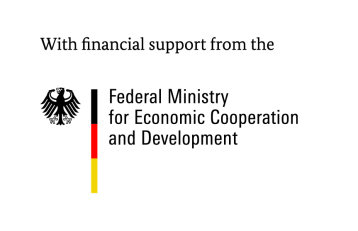CC-Adapt Summer School
For DAAD scholarship holders of the In-Region/ In-Country programme: Summer School on Climate Change Adaptation: Risk Assessment and Design of Interventions (CC-Adapt) from August 31st, 2024 to September 22nd, 2024 in Cologne, Germany.
Thematic Background
Climate change is already causing negative impacts across the globe, such as sea-level rise, increased climate variability, and more frequent or intense droughts, floods, and wildfires. In face of the observed impacts adaptation to climate change is high on the political agenda for governments around the world.
However, climate risk and adaptive capacity are context- and region specific. They result from the interactions of environmental, economic and socio-political factors. Adaptation interventions have to be locally-appropriate and need to be based on a profound understanding of the ecological and social systems at regional scales.
Objectives
Hence, the summer school aims at improving capacities of young academics (Master and PhD) in the cross-sectoral field of natural resources management to design climate change adaptation interventions adequate for local conditions and create information valuable for decision makers. The focus is on sustainable adaptation measures in water, land and energy sector considering both climatic risks and resources demand resulting from socioeconomic changes.
The participants will be enabled to select and apply methods, data and tools such as e.g. QGIS or CLIMADA to assess the socio-ecological systems in the context of climate change risk and to suggest adaptation interventions.
Furthermore, special emphasis is set on strengthening interdisciplinary professional competencies to prepare the participants for a future career in the international academic community
Content
- Understanding climate change and adaptation to climate change: basic definitions
- Steps of climate change adaptation strategy development: from risk assessment through evaluation of interventions to implementation and monitoring of interventions
- State of the art of climate change adaptation based on the Sixth Assessment Report (AR6) of the IPCC Working Group II: Impacts, Adaptation and Vulnerability
- Climate risk assessment – data, tools and methods for climate change risk assessment at regional scale with focus on water, energy and food sector
- Introduction of different climate change adaptation interventions (e.g. groundwater recharge, efficient irrigation systems, agrophotovoltaics)
- Case study examples of climate change related risks and adaptation interventions
How do we learn?
The summer school will consist of input lectures, interactive sessions and discussions, group work and peer to peer learning. Furthermore, the participants will select and work on own case studies relevant for their research or professional activities. In class meetings will be completed by excursions to experience climate change adaptation in practice.
In extracurricular activities, such as: seminars, movie nights, cooking evenings and city tours we will offer you also space for inter-cultural exchange and networking.
 Logo BMZ Englisch
(Image: BMZ)
Logo BMZ Englisch
(Image: BMZ)

